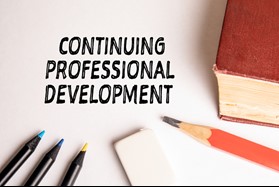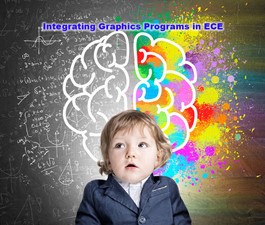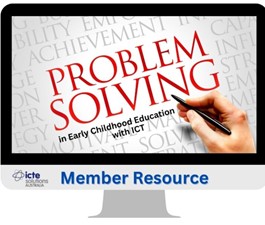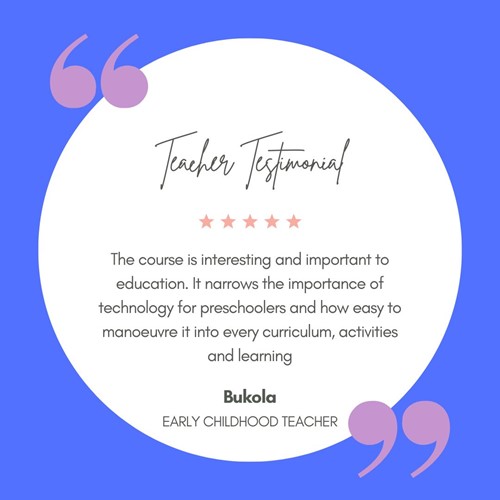Welcome to our Early Childhood Professional Development
We specicalise in early childhood teacher technology professional development.
The benefits of our early childhood professional development include:


Why join our free online ECE workshops?
 |
Set your own learning goals |
|---|---|
 |
Embedded lesson plans for early childhood education |
 |
CPD for Early Childhood Educators |
 |
Put learnt educational theories into practice |
 |
3 hour Certificate of Completion |
 |
Become a member for just $20 per month & gain instant access to the following online ECE workshops. |
Trial our most popular online ECE workshop
How to Successfully Integrate Technology in Preschool Activities
You will learn how to successfully start the process of technology integration in early childhood education by understanding and applying research-based strategies. Gain the expertise you need in order to make an impact on child learning with technology today.
This is a free online ece workshop such as preschool, kindergarten, childcare educators and early primary teachers and practitioners.
Have you ever thought about these questions? I'll answer them for you...
-
What are the key theories underpinning young children learning with technology?
-
What is technology in early childhood education?
-
What is technology integration in early childhood education?
-
What are the basic computers skills for kindergarten, preschool and other early childhood education?
-
How to teach technology to kindergarten, preschool and early primary?
-
How to use technology in preschool classrooms? How to use technology in the kindergarten classroom?
-
Why is planning important in early childhood education? (from a technological perspective)
-
How does technology affect early childhood education? What is the importance of technology in early childhood education?
-
How to encourage teachers to use technology in the classroom?
Subscribe to our Technology in Early Childhood Education newsletter today!
"Excellent. I really enjoyed this course" - Dora
"The course is really important to education. It narrows the importance of technology for preschoolers." - Bukola
"Thank you. This was a very informative course." - Saima
SUBSCRIBE TO GAIN ACCESS TO THIS COURSE TODAY - PLUS WEEKLY, PRACTICAL ADVICE!
Recommended Free Online ECE workshops
The following online PD for early childhood educators is included in your Academy membership!
Access all free online ECE workshops as a member for just $20 per month (cancel anytime)

Planning and Implementing Learning Through Play
You will learn how to effectively plan for digital play-based learning by applying sound instructional decisions in your early childhood learning environment that will ensure that digital technology is viewed as a tool to enhance and support teaching and learning. Thread the digital technologies into the early learning goals and early play experiences to improve the quality and effectiveness of learning today.
Learning Outcomes:
- Understand why planning is important in ECE
- Develop an understanding of ICT resources
- Promote progression in capabilities
- Inform your planning by understanding relationships
- Plan to challenge children with digital resources
- Consider appropriate uses of digital resources
- Match digital resources to intended learning.
- Adapt and apply thematic examples in your current planning.

Science and Technology in Early Childhood Education
You will learn how to successfully integrate technology in early science lessons by applying key strategies and selecting developmentally appropriate tools and resources that meet the learning and development needs.
Teacher Takeaways:
- Understand supporting educational theories.
- Choose from a selection of resources that best suit your needs.
- Adapt and apply science lessons for preschoolers.
- Critically reflect on the use of ICT for children's learning.
- Achieve a Certificate of Completion (3 hour workshop)
Australian Professional Standard for Teachers
2.1.2, 2.6.2 & 3.4.2
Access ECE resource now
Technology and Language Development in Early Childhood Education: Where to Start?
You will learn how to provide a rich language early childhood learning environment by maximising the available technology at your school or centre and by making sound instructional decisions that support the development literacy, language and communication in young children.
Teacher Takeaways:
- Understand supporting educational theories.
- Choose from a selection of resources that best suit your needs.
- Adapt and apply language development lesson plans for early childhood education.
- Critically reflect on the use of ICT for children's learning.
- Achieve a Certificate of Completion (3 hour workshop)
Australian Professional Standard for Teachers
2.1.2, 2.5.2, 2.6.2 & 3.4.2
Access ECE resource now
Nurturing Creativity in Early Childhood Education with Drawing and Painting programs
You will learn how to implement open-minded and meaningful ICT experiences that support your pedagogy and understanding by exploring creative opportunities in your learning environment and developing a hands-on learning approach.
Teacher Takeaways:
- Understand supporting educational theories.
- Choose from a selection of resources that best suit your needs.
- Adapt and apply ICT integrated activities that promote creativity for preschoolers.
- Critically reflect on the use of ICT for children's learning.
- Achieve a Certificate of Completion (3 hour workshop)
Australian Professional Standard for Teachers
2.6.2, 3.2.2, & 3.4.2
Access ECE resource now
How to Enhance Mathematics in Early Childhood Education with Technology?
You will learn how to successfully integrate digital technology to facilitate and enhance the learning of mathematics by applying sound instructional strategies in your early learning environment today.
Teacher Takeaways:
- Understand supporting educational theories.
- Choose from a selection of resources that best suit your needs.
- Adapt and apply ICT integrated numeracy activities for preschoolers.
- Critically reflect on the use of ICT for children's learning.
- Achieve a Certificate of Completion (3 hour workshop)
Australian Professional Standard for Teachers
2.1.2, 2.6.2 & 3.4.2
Access ECE resource now

How to Teach Computers to Preschoolers?
You will learn ‘How to Teach computers to Preschoolers’ by embedding a meaningful digital pedagogy into your learning environment with an understanding about key learning theories that will progress skills in children’s ICT capabilities.
Teacher Takeaways:
- Understand supporting educational theories.
- Choose from a selection of resources that best suit your needs.
- Adapt and apply computer activities for preschoolers.
- Critically reflect on the use of ICT for children's learning.
- Achieve a Certificate of Completion (3 hour workshop)
Australian Professional Standard for Teachers
2.6.2, 3.3.2 & 3.4.2
Learn more now
Problem-solving with ICT Workshop
You will learn how to successfully integrate experiences that encourage children to investigate and solve problems through asking questions, investigating, and using digital technologies.
Teacher Takeaways:
- Understand supporting educational theories.
- Choose from a selection of resources that best suit your needs.
- Adapt and apply problem-solving activities with ICT for preschoolers
- Critically reflect on the use of ICT for children's learning.
- Achieve a Certificate of Completion (3 hour workshop)
Australian Professional Standards for Teachers
2.1.2, 2.6.2, 3.2.2, 3.3.2 & 3.4.2
Access ECE resource nowSupporting free online ECE workshops include the following:

Intentional Teaching Strategies in Early Childhood Education
You will learn how to build on the home technology experiences of young children in your care by making sound instructional decisions that will support children's ICT capability and ICT literacy along with providing opportunities to use ICT as a tool to support their learning and by applying in lessons today intentional teaching practices.
Learning Outcomes:
- Understand early childhood pedagogies in ICT
- Teach technology to preschoolers
- Apply intentional teaching strategies for digital play-based learning.
- 10 ways that you can use assessment to inform your teaching strategies
- Technology skills for Preschool
- Applying examples of metacognitve strategies in the classroom
- How to structure and stimulate learning
- Scaffolding children's ICT learning
- Differentiated instruction with technology
- Strategies to build a child's capabilities in technology
- How to teach basic computer skills in ECE
- How to teach
3 hours of CPD - Australian Professional Standards for Early Childhood Teachers 2.6.2
Access ECE resource now
Observation Techniques in Early Childhood Education with Digital Play
You will learn an integrated system of assessment that will make it easier for you to make judgements about the conceptual and procedural technological knowledge of young children. Gain additional expertise in observation that will take you beyond just commenting on whether a child had completed technological work in transition statements.
Learning Outcomes:
- Plan for progression and continuity
- Monitor and intervene at the appropriate times
- Involve parents assessment
- Document ICT learning
- Provide feedback to children
2 hour of Online PD with a Certificate of Completion
Access ECE resource now
High Impact Teaching Strategies
A bank of 10 instructional strategies that will enable you to deliver learning outcomes with ICT activities.
Access ECE resource now
Digital Storytelling in Early Childhood Education
You will learn how to maximise the benefits of digital storytelling in early childhood education by applying key teaching strategies that will build upon children's literacy learning today.
Key Learning Outcomes:
- Benefits of digital storytelling for children
- How to use storytelling in the classroom
- Digital storytelling and Literacy in ECE
- Enabling a sense of self
- What is your role as an educator in digital storytelling?
- Characteristics of the Digital storytelling setting
- Multimodal literacy
- How digital storytelling supports learner characteristics and teaching strategies to apply
- Assessing digital storytelling
Access ECE resource now
10 + Hour ECE workshops

How to support Play-based Learning in Early Childhood Education with Digital Technology?
Price: Free as an Academy member!
You will learn how to support play-based learning in early childhood education with digital technology that will respond to a child's capabilities and learning needs. This course is NOT about understanding digital play research but IS about providing you with the 'practical and immediately actionable" strategies and steps that you can APPLY today and which are derived from the current research on digital play in the early years.
Learning Outcomes:
- Overcome barriers to play-based learning
- Understand digital play in the early years
- Apply digital storytelling to promote literacy
- Promote learning without failure
- Support outdoor play with digital technologies
- Plan effectively for play-based learning
- Link HITS to play-based learning
- Facilitate play-based pedagogy in early childhood learning environments
- Observe and assess digital play-based learning
- Reflect on your experience and make the appropriate changes for the future.
Aligned with the EYLF and EYFS
Aligned with APST 2.4.2 & 3.4.6
10 hours of Elective PD
Become a member now
Harness Technology in Early Childhood Education Today
Price: Free as an Academy member
This online PD for early childhood educators and carers delivers practical and immediately actionable advice on how to plan, teach and assess technology integration in the early learning environment. You will learn the expertise you need in order to lay the foundations for technological literacy and ICT capability in meaningful subject-related contexts.
Learning Outcomes:
- Conduct a thorough analysis of the situation so that you can effectively plan your educational path
- Embed methods of observation and assessment that will inform your planning in technology integration and enable you to pass on meaningful information in transition statements
- Select developmentally appropriate ICT tools for learning so that each one will make a positive impact in child learning and empower young children in their technological surroundings
- Employ sound instructional decisions that will further enable you to respond to their technology skills, abilities, knowledge and interest
- Implement STEM activities that incorporate and develop technological capabilities in numeracy and science learning.
- Creatively encourage the use of technology through timely intervention and demonstration of ICT skills
- Implement a Universal framework for Inclusion with Technology with everyday strategies that will enable all children to learn
- Feel empowered in your capabilities in ICT by gaining the expertise you need to make a difference and building on your own capacity as an ECE practitioner
11 hours of PD addressing 2.6.2, 3.4.2, 3.2.2, 4.5.2 and 5.1.2.
WHAT ARE PEOPLE SAYING?
Become a member now

Replays with Expert Advice!
Supercharge your professional learning goals with our range of technology in early childhood experts including:
- Dr Chip Donohue
- Dr Kate Highfield
- Dr Amanda Sutherland
- Bryan Fuerling and more!
Frequently Asked Questions
How will I be charged for access to all of these ECT teaching resources and online workshops?
When you sign up, you will get immediate access to all training. Unless you cancel your subscription, you will then be automatically charged $5.99(AUD) per month. Your nominated payment method will be automatically deducted from once a month. You can cancel your subscription at any time from within your learning dashboard, but as soon as you cancel, you immediately cease to have access to all of your training.
Can I cancel my membership?
Yes. You can cancel your membership yourself at ANY time from inside your own dashboard with no questions asked.
How do I access my training?
The first time you click to purchase your ICT in Education Teacher Academy membership, you will need to sign up and create your own login details. As soon as you have paid your first $50 you will have full access. You will need to log in with your own log in details each time you access your training. It is recommended that you save the ICT in Education Teacher Academy to your favourites so that it is easy to find next time.
Do I get access to all of the training immediately, or is it drip-released?
Yes, you do. All training is released at once.
Do I have to become a member to access your training?
No. You can purchase the online courses individually for a one-off fee.
Will my monthly membership fee increase?
Not if you stay a member. Although the membership price does increase every year to reflect the huge additions of courses to the member's area, all existing members maintain their access at the same price FOR LIFE (as long as you don't cancel), and the price increases will only apply to new subscribers. If you cancel, you are then considered a 'new' member again and if the price has increased, your monthly membership fee will reflect the most up-to-date pricing. If you do not cancel, your monthly membership fee will be honoured for as long as you maintain the payments and include all future upgrades at no extra costs.
Will I get new courses and content?
Yes. All members will have new courses and content automatically added to their member dashboard at no extra cost to their monthly subscription. New courses are not released monthly, however.
Why join our online training for early childhood educators?

Many people have taken part in our online training for early childhood educators by completing our teacher technology professional development.

If you enrol in one of our online PD for early childhood educators as a stand-alone course, you will receive lifetime access to the course. CPD for teachers is very important and by returning to each course you will be able to continue to gain access to new course content and resources.




The Importance of Continuous Technology Professional Development for Teachers
Introduction
In today's rapidly evolving world, technology is transforming the way we live, work, and learn. For teachers, keeping up with these changes is essential to providing a relevant and engaging education for their students. Continuous professional development in technology is no longer a luxury; it has become a necessity.
In this article, we will explore the importance of ongoing early childhood teacher technology professional development for teachers. We will dive into the benefits it brings to both educators and students, as well as the challenges that can arise when technology skills fall behind. From staying up-to-date with the latest digital tools to developing innovative teaching strategies, continuous professional development in technology empowers teachers to stay ahead of the curve.
By embracing technology and honing their digital skills, teachers can create dynamic and interactive learning experiences that capture students' attention and enhance their understanding of complex concepts. Additionally, continuous professional development in technology enables teachers to foster critical thinking, collaboration, and creativity among their students – crucial skills for success in the modern world.
Join us as we delve into the world of continuous technology professional development for teachers and discover how it paves the way for a brighter and more connected future in education.
The benefits of continuous professional development for teachers
Continuous professional development in technology brings a multitude of benefits to educators and students alike. Firstly, it allows teachers to stay up-to-date with the latest digital tools and platforms, ensuring they are equipped with the knowledge and skills necessary to leverage technology effectively in the classroom. By staying ahead of the curve, teachers can select and integrate the most suitable technological resources into their teaching practices, enhancing the learning experience for their students.
Moreover, continuous professional development in technology provides teachers with the opportunity to develop innovative teaching strategies that leverage the power of emerging technologies. By exploring new pedagogical approaches and incorporating technology into their lessons, educators can create dynamic and interactive learning experiences that captivate students' attention and foster a deep understanding of complex concepts. The use of technology also opens doors for personalized learning, allowing teachers to tailor their instruction to meet individual students' needs and interests.
In addition to enhancing teaching practices, continuous professional development in technology empowers teachers to foster essential skills such as critical thinking, collaboration, and creativity among their students. By integrating technology into their lessons, educators encourage students to think critically, solve problems, and analyze information in a rapidly changing digital landscape. Collaborative learning experiences facilitated by technology enable students to work together, share ideas, and develop vital teamwork skills. Furthermore, technology provides a canvas for creativity, allowing students to express themselves through multimedia projects, digital storytelling, and artistic endeavors.
Integrating technology into the Curriculum
Integrating technology into the curriculum requires careful planning and implementation. Teachers must ensure that technology is used purposefully and effectively to support learning outcomes. Continuous professional development in technology equips teachers with the knowledge and skills to navigate this integration process successfully.
When integrating technology into the curriculum, teachers should start by identifying the learning goals and objectives they aim to achieve. By aligning technology use with these goals, educators can select appropriate digital tools and resources that enhance student learning. For example, if the objective is to develop students' presentation skills, teachers can explore tools such as PowerPoint or Prezi to create engaging visual presentations.
Additionally, teachers should consider the accessibility and inclusivity of the technology they choose to integrate. It is essential to ensure that all students, regardless of their abilities or background, can benefit from technology-enabled learning experiences. Teachers should explore assistive technologies and digital resources that cater to diverse learning needs and provide equal opportunities for all students.
Furthermore, ongoing professional development in technology enables teachers to stay informed about emerging trends and best practices in educational technology. Attending conferences, webinars, and workshops focused on technology integration in education allows educators to connect with experts in the field and gain valuable insights into effective strategies and tools.
Conclusion: Embracing lifelong learning in the technology-driven world of education
As technology continues to shape our world, teachers must embrace lifelong learning and continuously develop their technology skills. Continuous professional development in technology offers numerous benefits, from equipping teachers with the knowledge and skills to enhance their teaching practices to fostering critical thinking, collaboration, and creativity among students.
By integrating technology into the curriculum, teachers can create engaging and interactive learning experiences that prepare students for the challenges of the modern world. However, successful technology integration requires careful planning, alignment with learning objectives, and consideration of accessibility and inclusivity.
As we navigate the technology-driven world of education, let us embrace continuous professional development in technology and stay ahead of the curve. By doing so, we can pave the way for a brighter and more connected future in education.
---
The above article provides a comprehensive exploration of the importance of continuous early childhood teacher technology professional development. It emphasizes the benefits it brings to both educators and students, as well as the challenges that can arise when technology skills fall behind. The article also delves into the integration of technology into the curriculum, highlighting the need for purposeful and inclusive implementation. By embracing lifelong learning in the technology-driven world of education, teachers can create dynamic and innovative learning experiences that prepare students for success in the digital age.
Free Early Childhood Teacher Technology Professional Development
The importance of ICT professional development for teachers
Now that we understand the benefits of ICT professional development for teachers, let's delve deeper into why it is crucial for teachers to continually update their skills and knowledge in this rapidly evolving field.
1. Keeping up with technological advancements: Technology is constantly evolving, and new tools and platforms emerge regularly. ICT professional development ensures that educators stay up to date with the latest advancements, allowing them to effectively integrate technology into their teaching practices.
2. Adapting to changing student needs: Today's students are digital natives who are accustomed to using technology in their everyday lives. By participating in ICT professional development, teachers can better understand and meet the needs of their tech-savvy students, ensuring they receive an education that is relevant and engaging.
3. Overcoming the fear of technology: Some educators may feel overwhelmed or intimidated by technology. ICT professional development provides the necessary support and guidance to help teachers overcome their fears and develop confidence in using technology as a powerful educational tool.
4. Addressing equity and access issues: ICT professional development not only equips teachers with the skills to use technology but also helps them address equity and access issues in their classrooms. By utilizing technology, educators can bridge the digital divide and provide equal learning opportunities for all students.
5. Creating a culture of innovation: ICT professional development fosters a culture of innovation within educational institutions. When teachers are equipped with the skills and knowledge to integrate technology effectively, they become catalysts for change, inspiring creativity and experimentation in their classrooms.
Master the Fundamentals: Unlock Your Potential with ECE Online Workshops
Unlock your potential and become an expert in Early Childhood Education (ECE) with our online workshops. Designed to help you master the fundamentals of ECE, our workshops provide a convenient and accessible way to enhance your skills and knowledge from the comfort of your own home.
Are you passionate about working with young children and want to make a positive impact on their lives? Our ECE online workshops are perfect for aspiring educators, childcare providers, or anyone looking to deepen their understanding of child development and learning.
Led by experienced professionals in the field, our workshops cover a wide range of topics, including child psychology, curriculum development, communication strategies, and behavior management techniques. Through interactive sessions, hands-on activities, and real-life case studies, you'll gain practical skills and strategies that you can immediately apply in your professional life.
With flexible schedules and self-paced learning options, our online workshops allow you to study at your own convenience. Plus, our user-friendly platform makes it easy to engage with fellow learners, ask questions, and receive personalized feedback from our instructors.
Don't miss this opportunity to unlock your potential and become a confident and effective ECE professional. Enroll in our online workshops today and take a step towards achieving your career goals.
Benefits of participating in ECE Online Workshops
Participating in ECE online workshops offers numerous benefits for individuals interested in Early Childhood Education. One of the key advantages is the flexibility they provide. With online workshops, you have the freedom to study at your own convenience, fitting your learning around your existing commitments. Whether you are already working in the field or have other responsibilities, our workshops allow you to balance your personal and professional life while still gaining valuable knowledge.
Another benefit of ECE online workshops is the accessibility they offer. Unlike traditional workshops that may require travel or specific time commitments, online workshops can be accessed from anywhere with an internet connection. This means that individuals living in remote areas or those with limited access to educational resources can still benefit from high-quality ECE training.
Furthermore, our online workshops provide a collaborative learning environment. Through our user-friendly platform, you will have the opportunity to engage with fellow learners, ask questions, and share insights. This interaction fosters a sense of community and enables you to learn from others' experiences and perspectives. Additionally, our experienced instructors will be actively involved in the online discussions, providing personalized feedback and guidance to help you succeed.
Overview of the fundamentals covered in ECE Online Workshops
Our ECE online workshops are designed to help you build a strong foundation in the field of Early Childhood Education. By mastering the fundamentals, you will gain the necessary skills and knowledge to create a positive and enriching learning environment for young children.
The workshops cover a wide range of topics, including child psychology, curriculum development, communication strategies, and behavior management techniques. These core areas are essential for understanding child development, planning effective lessons, and fostering healthy relationships with children and their families.
In the child psychology module, you will explore the cognitive, social, emotional, and physical development of children from birth to age five. You will learn about various theories and research findings that shape our understanding of how children grow and learn. This knowledge will enable you to design developmentally appropriate activities and create engaging learning experiences.
The curriculum development module will provide you with the tools and techniques to design and implement effective curricula for young children. You will learn about different approaches to curriculum planning, such as play-based learning and emergent curriculum. Through hands-on activities and case studies, you will gain practical skills in creating engaging lesson plans and assessing children's progress.
Communication strategies are crucial for building positive relationships with children, their families, and your colleagues. In this module, you will learn effective techniques for communicating with young children, including active listening, positive reinforcement, and nonverbal communication. You will also explore strategies for effective collaboration with families and other professionals involved in a child's education.
Behavior management is another essential aspect of ECE. In this module, you will learn strategies for promoting positive behavior and addressing challenging behaviors in young children. You will explore techniques such as positive reinforcement, redirection, and conflict resolution. By understanding the underlying causes of behavior and implementing appropriate strategies, you will create a supportive and nurturing environment for children to thrive.
Key topics and skills taught in ECE Online Workshops
Our ECE online workshops cover a variety of key topics and teach essential skills that are valuable for anyone working with young children. Here are some of the main areas you will explore:
- Child development: Gain a comprehensive understanding of the cognitive, social, emotional, and physical development of children from birth to age five. Learn about the milestones and stages of development, as well as factors that influence growth and learning.
- Play-based learning: Discover the power of play in early childhood education. Explore different types of play and learn how to create engaging and developmentally appropriate play experiences for young children.
- Curriculum planning: Learn how to design and implement effective curricula for young children. Explore different approaches to curriculum planning, such as emergent curriculum and project-based learning. Develop skills in creating engaging lesson plans and assessing children's progress.
- Communication and collaboration: Master effective communication strategies for interacting with young children, their families, and colleagues. Learn techniques for active listening, positive reinforcement, and nonverbal communication. Develop skills in collaborating with families and other professionals involved in a child's education.
These topics and skills are essential for anyone working in the field of Early Childhood Education. By mastering these fundamentals, you will be equipped with the knowledge and tools to make a positive impact on the lives of young children and their families.
Available ECE Online Workshops and their Syllabus
To make the most of your ECE online workshops, here are some tips to enhance your learning experience:
- Create a dedicated study space: Set up a quiet and comfortable space where you can focus on your learning without distractions. Having a dedicated study area will help you stay organized and engaged in the workshop materials.
- Set goals and establish a study schedule: Determine what you want to achieve through the workshops and set specific goals. Break down your goals into smaller tasks and create a study schedule to ensure you make progress consistently.
- Actively participate in discussions: Take advantage of the collaborative learning environment by actively participating in online discussions. Engage with fellow learners, share your insights, and ask questions. This interaction will enhance your understanding and provide different perspectives on the topics covered.
- Complete all assignments and activities: The workshops may include assignments, activities, and quizzes to reinforce your learning. Make sure to complete all of these tasks to solidify your understanding and apply the concepts in practical scenarios.